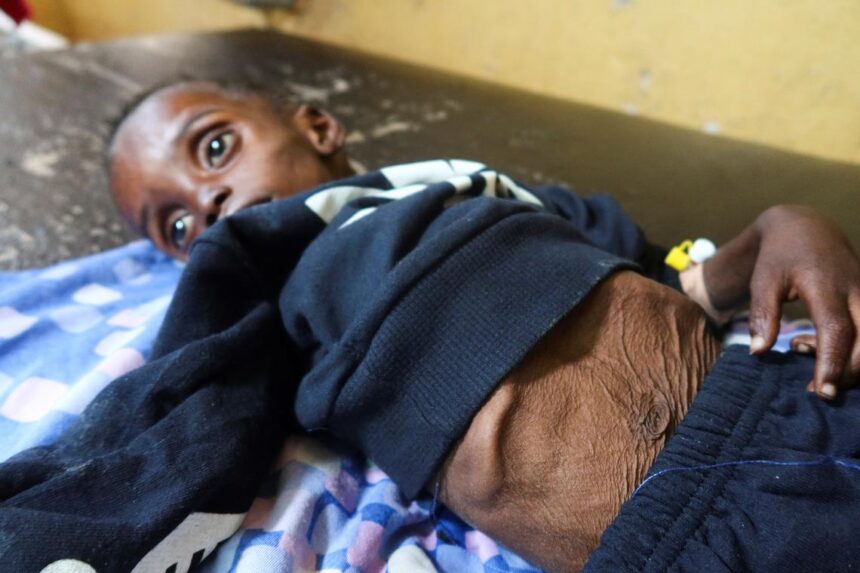As the sun rises over Sudan, it casts a stark light on a humanitarian crisis that continues to deepen. With over 15 million people facing severe hunger, medical teams are at the forefront of a battle to save lives amidst dwindling resources and a trickle of aid supplies. The situation is dire, but the dedication of healthcare workers shines as a beacon of hope.
A Humanitarian Catastrophe Unfolds
According to the United Nations, Sudan is experiencing one of the worst food crises in recent history, worsened by the ongoing conflict that erupted in 2019. The civil strife has not only led to widespread displacement but also disrupted supply chains, crippling access to essential food and medical supplies. The World Food Programme (WFP) has reported that millions are on the brink of starvation, with malnutrition rates among children reaching alarming levels.
Medical Teams on the Frontlines
Healthcare professionals, often working in makeshift clinics or tented facilities, are confronting the dual challenge of hunger and illness. Dr. Amina Hassan, a field doctor in South Kordofan, shared her frustrations: “Every day, we see children arrive malnourished and dehydrated, yet we lack the resources to provide adequate care. Our work feels like a race against time.”
These medics are trained to handle trauma and disease but face the unprecedented challenge of stabilizing patients who are suffering from severe malnutrition. Each day, they receive a small shipment of aid supplies — sometimes only enough to treat a handful of patients. Yet, their resolve remains unwavering. “We do what we can with what little we have,” says Dr. Hassan.
The Trickle of Aid
International aid organizations are striving to inject life-saving assistance into Sudan, but the reality is stark. Bureaucratic obstacles, security concerns, and logistical challenges hinder the distribution of aid. The UN estimates that only 50% of the aid needed to combat this hunger crisis is currently being delivered. Emergency food, medical supplies, and therapeutic foods designed to combat malnutrition are all in short supply.
Given the urgency, frontline workers are forced to innovate. They prioritize cases based on severity, often making heartbreaking decisions about who receives care first. This is not merely a choice; it is a plea for survival amid overwhelming odds.
Resilience in the Face of Adversity
Local NGOs and community health workers have risen to meet some challenges, employing grassroots methods to address nutritional needs. Traditional knowledge about local plants that can supplement diets is being utilized, and community gardens are being established to help alleviate the worst of the hunger crisis.
However, these efforts cannot replace the need for robust international support. Advocates warn that without a concerted global response, including increased funding and a focus on removing barriers to aid, the situation will only deteriorate.
A Call to Action
As medical professionals in Sudan continue to battle on the front lines of hunger and illness, the world cannot afford to look away. The humanitarian disaster unfolding in this region is not a distant problem; it is a shared human crisis that demands urgent attention and action.
In times like these, every small effort counts. Individuals and organizations around the globe can play a pivotal role by supporting reputable charities, advocating for policy changes to facilitate the delivery of aid, and staying informed about the ongoing crisis.
In the face of unimaginable hardships, the tenacity of Sudan’s medics showcases the indomitable human spirit. Still, without a significant increase in aid and support, their arduous efforts may not be enough to save lives. As we bear witness to this tragedy, let’s not forget our responsibility to stand in solidarity with those striving for survival against all odds.
Email Us on editorial@nnafrica.com













